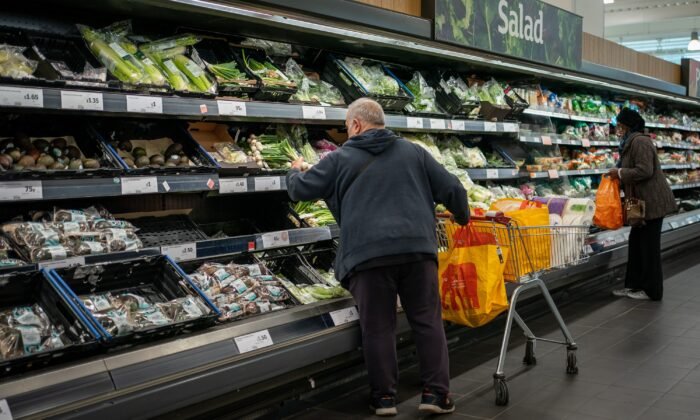Shop Price Inflation Reaches Low of 1.3 Percent, the Lowest Rate Since December 2021
The slowdown of food price inflation coincides with significant cost pressures on retailers and a slightly improving consumer confidence.
Shop prices have slowed down to the lowest level since December 2021, driven by decreasing food costs and heightened competition among retailers.
According to data from the British Retail Consortium (BRC)-NielsenIQ shop price index, there was a drop from 2.5 percent in February to 1.3 percent in March.
Food prices for consumers decreased to 3.7 percent, marking the tenth consecutive deceleration and the lowest inflation rate since April 2022.
Both fresh and ambient food costs fell below the three-month average rates and hit a record low in March.
Chief executive of the BRC, Helen Dickinson, attributed the shop price slowdown to intense competition among retailers.
“Shop price inflation eased to the lowest level since December 2021 last month as retailers continued to compete fiercely to bring prices down for their customers. While Easter treats were more expensive than in previous years due to high global cocoa and sugar prices, retailers provided cracking deals on popular chocolates, which led to price falls compared to the previous month. Dairy prices also fell on the month as farmgate prices eased, and retailers worked hard to lower prices for many essentials,” Ms. Dickinson said.
Inflation and Consumer Confidence
The deceleration of shop prices comes as “good news” for consumers, Ms. Dickinson said. It comes against the backdrop of easing inflation reported by the Office of National Statistics (ONS) in February.
Last month, the government welcomed the news of a 3.4 percent Consumer Prices Index rise, down from 4 percent in January.
Commenting on the figures, Chancellor Jeremy Hunt said that lowering inflation would bring “relief to families” and was a testimony to the government’s success in bringing the rate down and ultimately to the two percent target.
The lowest headline rate for two-and-a-half years was boosted by falls in food and non-alcoholic beverages sectors, as well as restaurants and hotels.
“This confidence would be further enhanced if the Bank of England now did the right thing and started to reduce interest rates, especially as energy prices, a factor in inflation, will fall again in April,” said CEO of BIRA, Andrew Goodacre.
The personal financial situation index was up one point in March, compared to the previous month. GfK’s forecast for people’s personal finances over the next 12 months is positive and higher than this time last year.
Pressure on Retailers
While consumers are feeling the effects of the inflation ease, the cost pressures for retailers remain significant, reported the BRC.
“These costs include a 6.7 percent business rates rise, ill-thought-out recycling proposals, and new border checks—all at the same time as the largest rise to the National Living Wage on record. The industry needs pro-growth government policy that supports investment and helps keep down prices for households up and down the country,” Ms. Dickinson said.
In the run-up to Mother’s Day and Easter, supermarkets focussed on price cuts and promotional offers earlier in March. The “intense” competition contributed to the fall in food prices, said Mike Watkins, head of retailer and business insight, NielsenIQ.
“A year ago, food inflation was 15 percent so this was to be expected,” he added.
While the cost of food appears to be on a downward trajectory, a growing number of Britons still have to turn to food banks.





